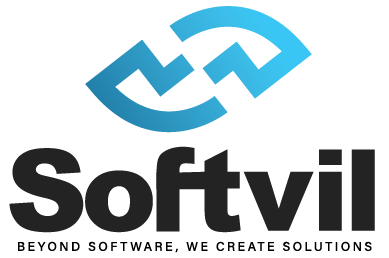In the rapidly evolving landscape of modern business, organizations are increasingly leveraging the advantages of distributed teams to harness global talent and expand their reach. One critical facet of this paradigm shift is the collaboration with a software outsourcing partner, enabling companies to tap into specialized expertise while overcoming geographical challenges. The dynamics of managing teams spread across different locations pose unique hurdles, from varying time zones to cultural diversity. This article delves into the intricacies of mastering distributed teams and provides practical insights to enhance communication, collaboration, and team cohesion. As businesses embrace the trend of outsourcing software development, understanding effective strategies becomes paramount in ensuring seamless operations and successful project outcomes. Join us in exploring actionable tips and case studies to navigate the complexities of team management in a globalized world.
Challenges of Managing Distributed Teams

Effective management of distributed teams requires addressing various challenges to ensure seamless collaboration. One of the primary hurdles is encountered in the realm of communication barriers, comprising several key aspects.
Time Zone Differences
- Synchronous Communication Strategies: Explore methods for establishing effective real-time communication despite varying time zones.
- Overlapping Work Hours: Discuss the importance of scheduling overlapping work hours to facilitate collaborative discussions and decision-making.
- Utilizing Time Zone-Friendly Tools: Highlight the significance of employing communication tools that accommodate different time zones seamlessly.
Language and Cultural Nuances
- Fostering Multicultural Awareness: Emphasize the need for promoting a deep understanding of diverse cultures within the team.
- Language Training Initiatives: Discuss the implementation of language training programs to enhance communication clarity.
- Utilizing Translation Tools: Explore the role of technology in mitigating language barriers and ensuring effective cross-cultural communication.
Technological Challenges
- Robust Technology Infrastructure: Discuss the importance of a reliable technology infrastructure in overcoming connectivity issues.
- Standardized Communication Tools: Highlight the significance of using consistent tools to streamline communication and collaboration.
- Technical Training Programs: Explore strategies for enhancing digital literacy among team members to address technological challenges effectively.
Within the context of organizations engaging with a software outsourcing partner, understanding and navigating these communication barriers become pivotal for successful collaboration. This section provides a comprehensive exploration of the challenges associated with time zone differences, language nuances, and technological considerations, offering practical insights for effective management of distributed teams in a globalized business environment.
Collaboration Obstacles in Distributed Teams

Effectively fostering collaboration within distributed teams presents unique challenges, impacting various aspects of teamwork and project management. Addressing these obstacles is crucial for ensuring cohesive and productive remote work environments.
Lack of Face-to-Face Interaction
- Virtual Team-Building Strategies: Explore innovative methods for building team cohesion and camaraderie in the absence of physical interactions.
- Video Conferencing Best Practices: Highlight the significance of video conferencing as a tool to enhance virtual face-to-face interactions and team bonding.
- Simulating In-Person Experiences: Discuss strategies to recreate the dynamics of face-to-face interactions through virtual means, fostering a sense of closeness.
Difficulty in Building Rapport and Trust
- Building Trust Remotely: Explore practical steps to cultivate trust among team members who may not have the opportunity for casual interactions.
- Personalized Communication Approaches: Highlight the importance of personalized communication in establishing strong interpersonal connections within a distributed team.
- Transparent Leadership Practices: Discuss the role of transparent leadership in building trust and creating a collaborative team culture.
Coordination Issues in Project Management
- Clear Task Assignments and Deadlines: Emphasize the importance of clearly defined roles, tasks, and deadlines to mitigate coordination challenges.
- Collaborative Project Management Tools: Explore the role of specialized tools in streamlining project coordination, ensuring seamless collaboration.
- Regular Progress Tracking and Updates: Discuss strategies for consistent progress tracking and updates to enhance overall project coordination and team awareness.
In the context of organizations collaborating with a software outsourcing partner, overcoming collaboration obstacles becomes essential for project success. This section delves into practical approaches to address the lack of face-to-face interaction, build rapport and trust remotely, and streamline coordination in project management, offering insights for enhancing collaboration within distributed teams and with software outsourcing partners.
Practical Tips for Enhancing Communication in Distributed Teams

Navigating the complexities of communication in distributed teams requires a strategic approach and the utilization of technology. This section outlines practical tips to foster effective communication, vital for the success of remote collaboration.
Utilizing Technology for Real-time Communication
- Video Conferencing Tools: Explore the role of video conferencing platforms in facilitating face-to-face interactions, enhancing team engagement, and fostering a sense of connection among remote members.
- Messaging Platforms: Discuss the significance of messaging apps in providing real-time communication, promoting quick exchanges, and facilitating casual conversations to maintain a sense of camaraderie.
- Collaborative Project Management Tools: Highlight the importance of specialized tools for project management that enable real-time collaboration, task tracking, and seamless information sharing among team members.
Establishing Clear Communication Protocols
- Setting Regular Meeting Schedules: Emphasize the value of consistent and scheduled meetings to maintain communication rhythms, discuss progress, and address any concerns.
- Providing Concise and Actionable Updates: Discuss the importance of clear and succinct updates, ensuring that information shared is relevant, easily digestible, and actionable.
- Encouraging Open and Transparent Communication: Explore strategies for fostering a culture of openness, where team members feel comfortable expressing ideas, concerns, and feedback, promoting effective communication.
In the context of organizations engaging with a software outsourcing partner, these communication tips are vital for maintaining a collaborative and productive relationship. By leveraging technology and establishing clear communication protocols, companies can enhance the effectiveness of remote communication, ensuring successful outcomes in projects involving a software outsourcing partner.
Strategies for Fostering Collaboration in Distributed Teams

Creating a collaborative and cohesive environment within distributed teams requires intentional strategies that go beyond traditional office settings. This section explores key strategies to enhance collaboration, particularly in the context of organizations partnering with a software outsourcing partner.
Building Relationships through Virtual Channels
- Virtual Team-Building Activities: Delve into innovative virtual team-building exercises and activities designed to strengthen team bonds, foster a sense of unity, and promote a positive team culture.
- Personalized Communication Approaches: Highlight the significance of tailoring communication to individual team members, acknowledging diverse preferences and fostering a more personalized connection.
- Encouraging Informal Interactions: Explore the role of informal virtual gatherings, such as virtual coffee breaks or casual chats, in building rapport and creating a more relaxed and collaborative atmosphere.
Implementing Effective Project Management
- Clear Task Assignments and Deadlines: Emphasize the importance of clearly defined roles, tasks, and deadlines to ensure accountability and streamline collaboration.
- Using Collaborative Project Management Tools: Discuss the benefits of utilizing advanced project management tools that facilitate real-time collaboration, document sharing, and task tracking, promoting efficiency and transparency.
- Regular Progress Tracking and Updates: Explore strategies for consistent progress tracking, including regular updates and status reports, to keep the team informed, aligned, and responsive to any project adjustments.
In the realm of software development and partnerships with a software outsourcing partner, these collaboration strategies are integral to project success. By focusing on relationship-building through virtual channels and implementing effective project management practices, organizations can foster a collaborative environment that maximizes the potential of distributed teams and ensures fruitful collaborations with software outsourcing partners.
Conclusion
In conclusion, mastering distributed teams and overcoming geographical challenges in today’s globalized business landscape necessitates a nuanced approach. The key elements of effective communication, collaboration, and team cohesion are pivotal in ensuring the success of remote work arrangements. As organizations increasingly engage with software outsourcing partners, understanding and addressing the intricacies of managing distributed teams become even more critical. The strategies outlined in this article, ranging from leveraging technology for real-time communication to implementing innovative virtual team-building activities, provide actionable insights for businesses aiming to navigate the complexities of remote collaboration. By fostering a culture of open communication, utilizing advanced project management tools, and embracing virtual channels for relationship-building, companies can not only overcome challenges but also cultivate a dynamic and cohesive distributed team environment. Ultimately, adaptability and a commitment to continuous improvement emerge as the cornerstones of success in mastering the intricacies of distributed team management.

